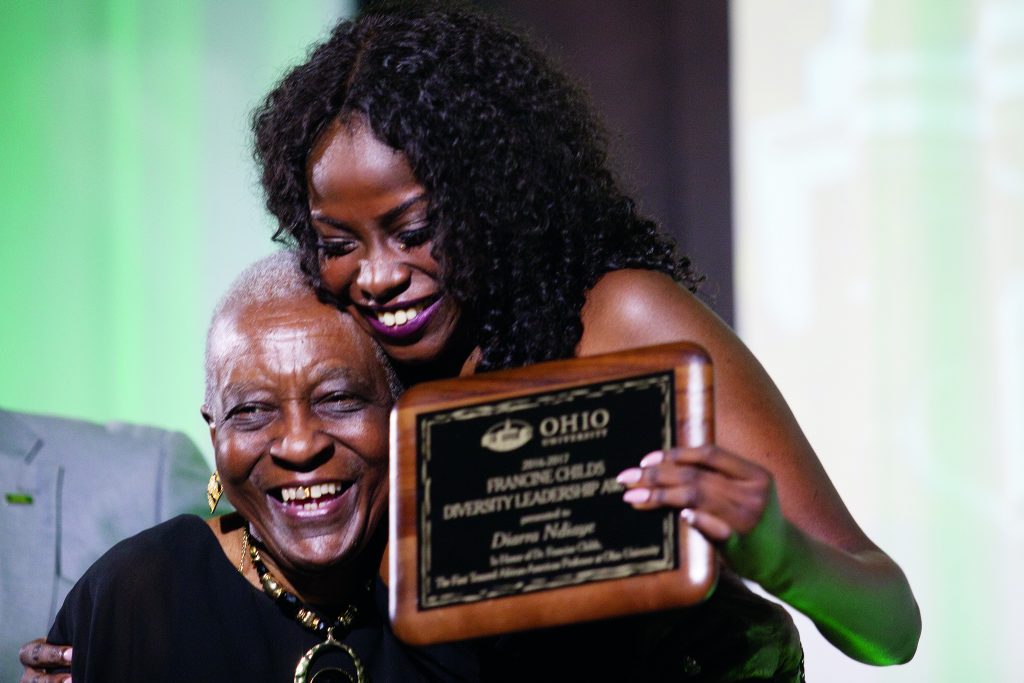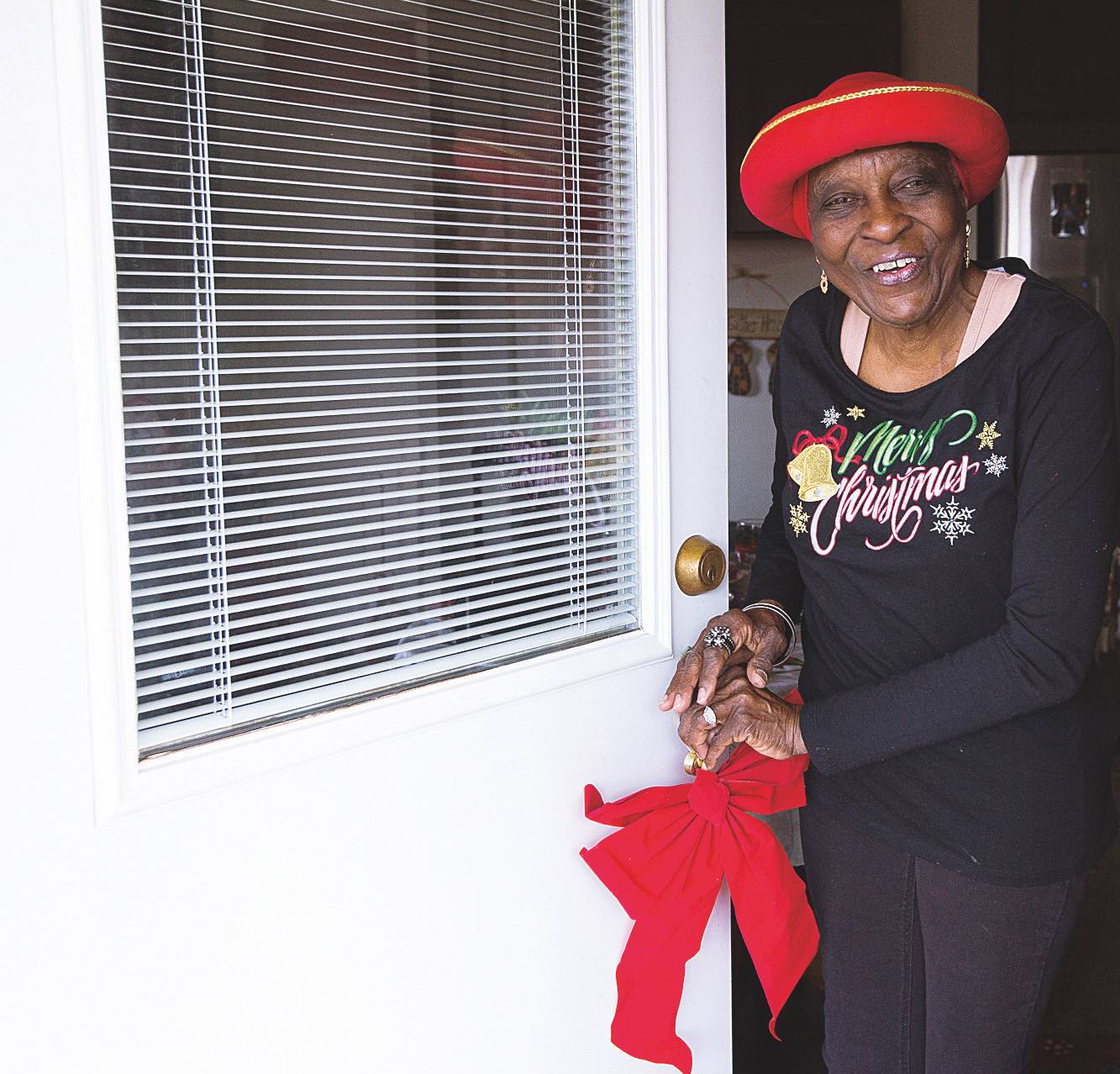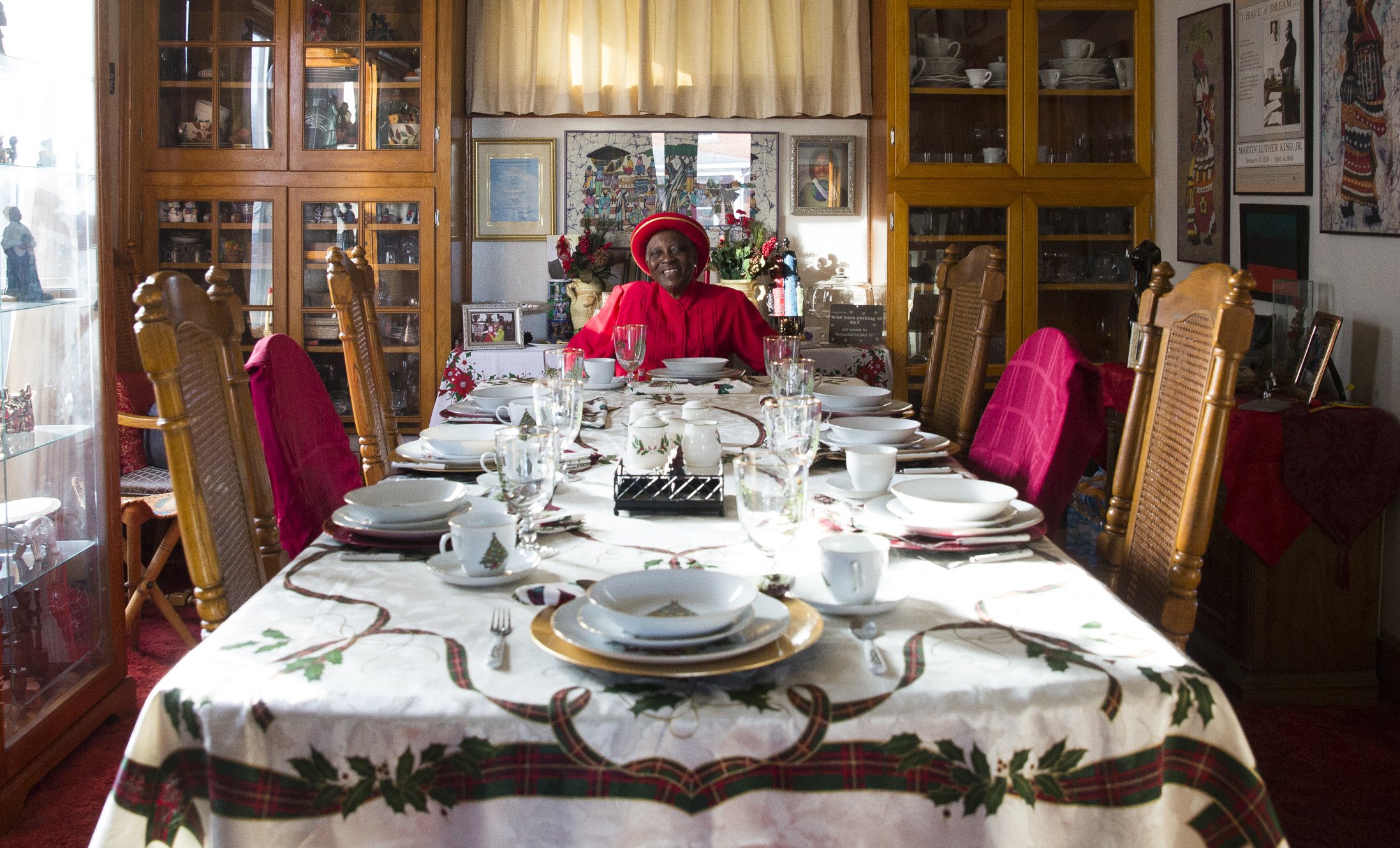“The one person who directly had the greatest influence in me being a scholar, in me being a successful businessman, it directly correlates to Dr. Francine Childs,” says her former student Lyman Montgomery, BSH ’91.
Childs’ journey into the hearts and minds of countless OHIO students began long before her 1974 arrival in Athens.
Living under her grandmother’s roof in the small town of Wellington, Texas, she spent her youth pulling cotton, studying her schoolwork, and watching her grandmother welcome into their home community members, college students, church patrons, and even strangers off the street.
“Our house was like the gathering place. People would just gravitate there,” she remembers.
After graduating as valedictorian of her high school class, she pursued her bachelor’s, master’s, and doctoral degrees, driven by her family’s tradition of education to become a teacher herself.

Childs (left) presents the 2017 Francine Childs Diversity Leadership Award to Diarra Ndiaye, who graduated in 2018 with a bachelor's degree in neurosciences. Photo by Kaitlin Owens, BSVC '17
“My grandmother’s father was a principal. Her mother was also a teacher. Her sister was a teacher. So, my grandmother was a great advocate for education,” she says.
Starting at OHIO as an associate professor in the then-Black Studies Program, Childs saw an opportunity to improve the breadth and depth of the program’s academic offerings. She taught courses like The Black Family, The Black Child, Techniques of Teaching in Inner-city Schools, and the Afro-American Personality, and advised several black student organizations.
Childs advanced through faculty ranks to chair what became the African American Studies Department, but she remained dedicated to developing personal, profound connections with her students.
“I started putting pressure on students to want to excel, don’t just do enough to get by. I became their friend, their mother, the policeman,” she says. “If they got in trouble, I was up there at the courts.”
Over the years, Childs’ Elliott Street home became a gathering place for many as she echoed her grandmother’s principles of hospitality and good works.
“I’d have groceries and things all on the porch,” she says. “I’d just put bags and stuff out on my porch and [students] knew they could just come on the porch and get what you need.”
Every year, Childs hosted a Christmas dinner for those who were unable to travel home for the holidays.

Photo by Madeleine Hordinski, BSVC ’20
“She did not want any student left alone, didn’t care about your religion, your race, your gender—none of that mattered,” Montgomery says. “She wanted to make sure that if you were a student there, then you were welcome to come and sit at the table.”
Winsome Chunnu-Brayda, MA ’04, PHD ’09, the associate director of OHIO’s Multicultural Center and a former student of Childs’, still brings new students and faculty to “Doc’s home” to acquaint them with Athens.
“It’s a space where we can bring the new people and say, ‘Here we are. We’re a community. We can help you,’” she says. “She’s that one presence that is calming and welcoming for people, as well as reassuring, because she’s been here so long.”
Feature photo by Madeleine Hordinski, BSVC ’20



